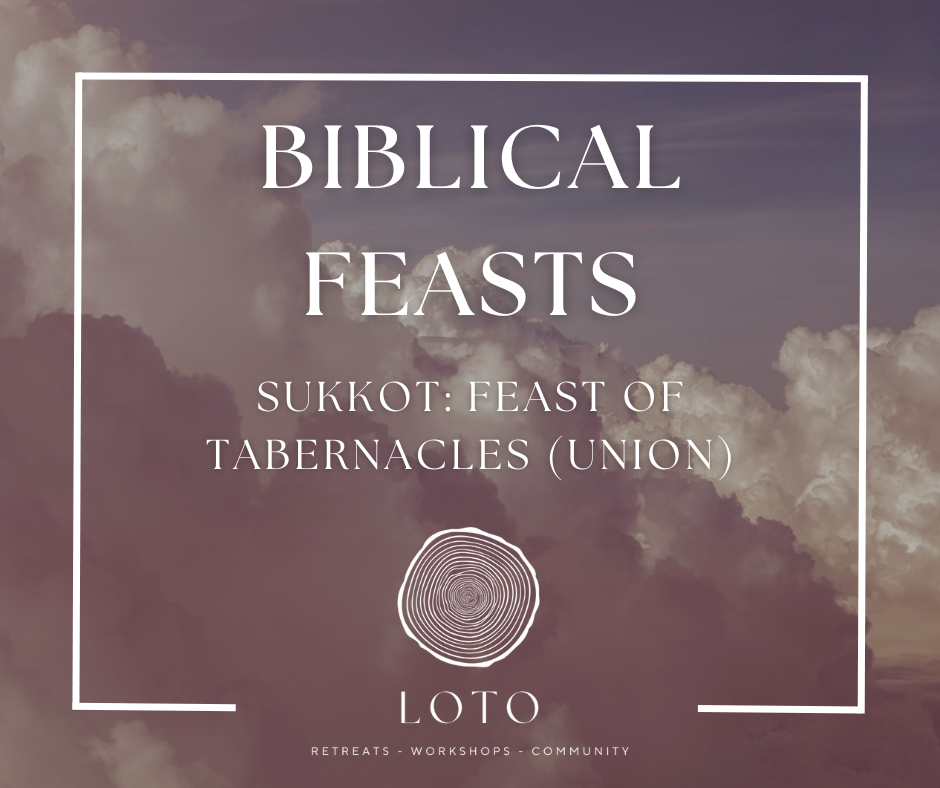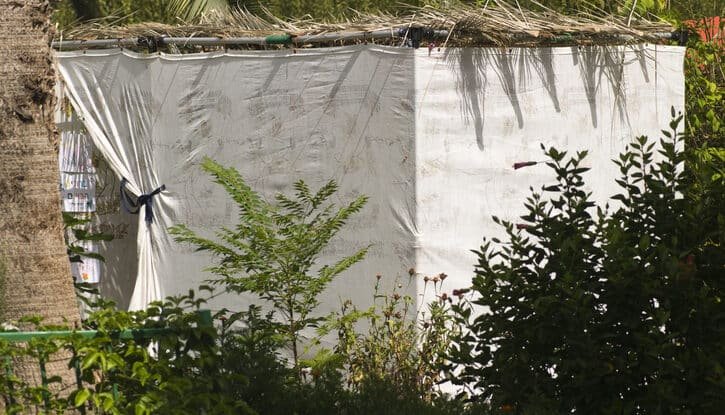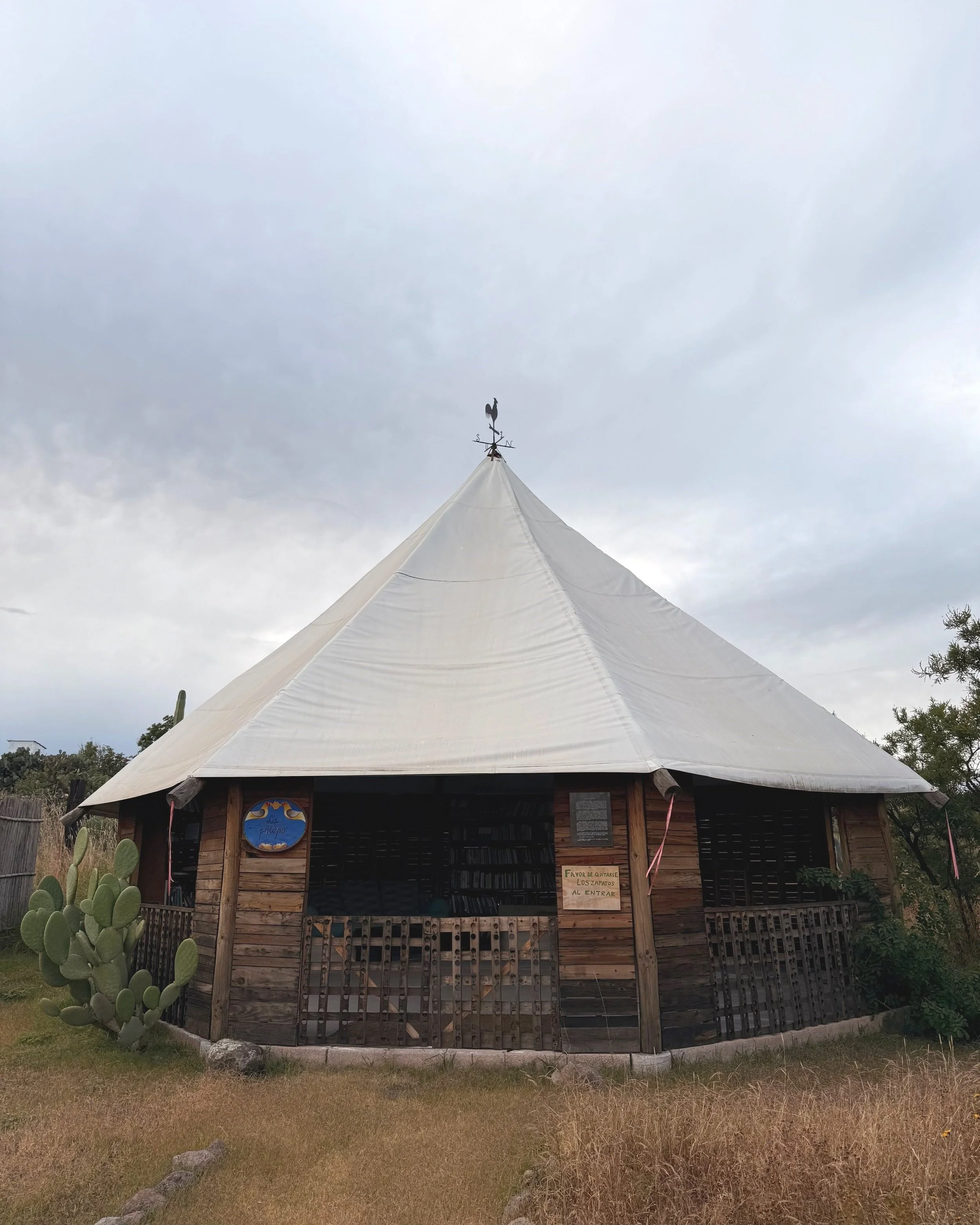Biblical Feasts: Sukkot (Feast of Tabernacles) - Union
"And the Word became flesh and dwelt among us, and we have seen his glory, glory as of the only Son from the Father, full of grace and truth."— John 1:14 NIV
After the solemn stillness of Yom Kippur comes the radiant joy of Sukkot, the Feast of Tabernacles — a seven-day festival of abundance, dwelling, and delight in God's Presence.
Where Atonement brings silence, Sukkot brings song. Where fasting emptied, feasting now fills. It is the great turning of the year from repentance to rejoicing, from release to rest, from at-one-ment to at-home-ment.
A Season of Dwelling
In Leviticus 23:33–43, God instructs the people to celebrate this feast by building sukkahs — temporary shelters made of branches, leaves, and open roofs through which one can see the stars. For seven days, the people were to dwell in these simple structures to remember the wilderness years, when God's Presence was their true home.
"Live in temporary shelters for seven days… so your descendants will know that I made the Israelites live in temporary shelters when I brought them out of Egypt." (Leviticus 23:42–43) Sukkot is a festival of impermanence. It is the gentle acknowledgment that everything in this world passes — that our homes, our plans, even our lives, are but tents in time. Yet through the frailty of those shelters shines the enduring Presence of God.
Remembering the Wilderness
In the wilderness, Israel learned dependence. God dwelled among Their people in the Tabernacle, a sacred, portable structure carried before them wherever they went (according to God's instructions). This Tabernacle was a visible reminder that God was journeying with them and that Their Presence wasn't confined to a single place.
There was no city wall to hide behind, no permanent structure to guarantee safety — only the daily provision of manna and the cloud of Presence by day and fire by night. Sukkot commemorates this intimacy. The fragility of the sukkah mirrors the fragility of life, but also the faithfulness of God who abides within it.
The mystics saw in this the paradox of incarnation: that the Infinite chooses to dwell in the finite, the Eternal in the fleeting. The Psalmist echoes this wonder: "Lord, you have been our dwelling place throughout all generations." (Psalm 90:1)
Gratitude for God’s Provision
In observing the lessons of Sukkot, we are reminded to practice gratitude for God's ongoing provision. Each of us can create our own "sukkah moments" through prayer, reflection, and community gatherings (or eating meals in a tent like Jennifer did), remembering the ways God has sheltered, guided, and sustained us. Just as the Israelites found hope in God's presence amidst their wilderness, we, too, can trust in YHWH’s indwelling Spirit.
The Feast of Joy
Sukkot is sometimes called Z'man Simchateinu — "the season of our joy." It was, and remains, one of the most jubilant celebrations in Jewish life. After the harvest was gathered, the people would feast, sing, and dance in gratitude for God's provision.
Deuteronomy 16:14–15 commands joy itself: "Be joyful at your festival… For the Lord your God will bless you in all your harvest and in all the work of your hands, and your joy will be complete." Joy here is not a surface happiness but a deep spiritual contentment — the joy that arises when one realizes that God has been dwelling with them all along.
Dwelling and the Incarnation
In Christian mystical tradition, Sukkot finds resonance in the mystery of incarnation. John's Gospel begins with the words, "The Word became flesh and dwelt among us" (John 1:14). The Greek word for "dwelt" (eskēnōsen) literally means "pitched His tent" or "tabernacled."
Just as the Israelites trusted God for daily provision in the desert, we are invited to trust Jesus for our needs, knowing God's Presence resides within us, empowering and comforting us. The sukkahs remind us that, though our earthly lives may feel temporary and uncertain, we have a secure home in God—a permanent Promised Land in the hope of eternal life.
Christ, the indwelling Word, is the living sukkah — God pitching His tent in humanity. This is the nondual heart of the feast: that divinity and humanity are not opposites, but two movements of the same breath. As the mystic Meister Eckhart said, "The eye with which I see God is the same eye with which God sees me."
In Sukkot, we celebrate that mutual indwelling — God in us, us in God.
The Nondual Invitation
In a dualistic reading, Sukkot contrasts the sacred and the secular, heaven and earth. But the mystic sees no such division. The fragile tent is sacred. The act of eating, resting, breathing — all of it is holy when done in awareness. To dwell with God is not to escape the ordinary, but to awaken to its holiness. The rustle of leaves overhead becomes the sound of prayer. The light filtering through branches becomes revelation. The laughter of friends becomes liturgy.
Sukkot teaches that joy is not found in permanence, but in Presence.
Living Sukkot Today
Most of us no longer build physical sukkahs, but we live in temporary shelters of another kind — our bodies, our homes, our fleeting days. To live Sukkot now is to hold all of it lightly and gratefully.
It is to find joy in the impermanent, beauty in the fragile, and Presence in the simple. It is to remember that the same God who guided Israel through the wilderness now dwells in every breath. To practice Sukkot is to pitch your tent wherever love leads — to open your roof to the stars and your heart to the indwelling Christ.
Reflection Questions
What does "dwelling with God" mean to you in this season of your life?
Where are you being invited to let go of control and rest in divine provision?
How do you experience joy — not as circumstance, but as Presence?
What might it look like to build a "sukkah" in your own life — a sacred space of simplicity, gratitude, and communion?
The Full Spiral
With Sukkot, the circle of the feasts is complete:
Passover — liberation
Unleavened Bread — purification
Firstfruits — gratitude
Weeks/Pentecost — illumination
Trumpets — awakening
Atonement — renewal
Tabernacles — dwelling/union
It is the spiral, a rhythm of divine life itself — from awakening to union, from exile to homecoming, from forgetting to remembering. Each feast is not only a moment in history but a mirror of the soul's ongoing journey into God.







